
Enterprise Chatbots: The 2026 Guide to Automation at Scale
Master enterprise chatbots in 2026. Learn system integration, automation strategies, high-impact use cases, deployment roadmaps, and the evolution toward agentic AI.
Dive deep with Webfuse and related topics - one Session at a time.
Stay up to date with our newest insights and discoveries

Master enterprise chatbots in 2026. Learn system integration, automation strategies, high-impact use cases, deployment roadmaps, and the evolution toward agentic AI.
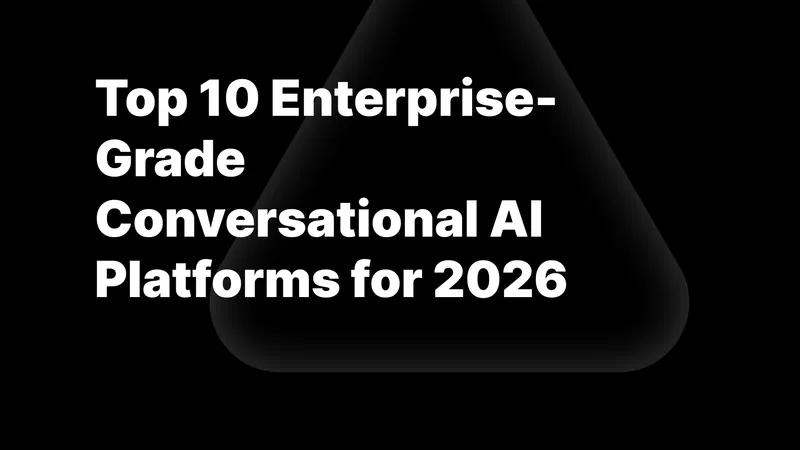
Compare top 10 enterprise conversational AI platforms for 2026: Cognigy, Kore.ai, Genesys, PolyAI, Rasa, LivePerson, Yellow.ai, Capacity, Boost.ai, and Retell AI. Find the best agentic AI solution for your business needs.
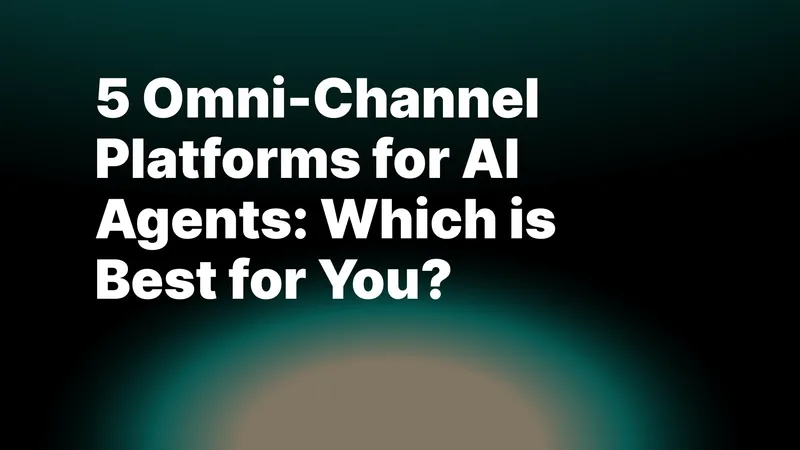
Compare Cognigy, Synthflow, Kore.ai, Yellow.ai, and Voiceflow for building AI agents across voice, chat, SMS, and social media. Find the right omni-channel platform for your business needs.
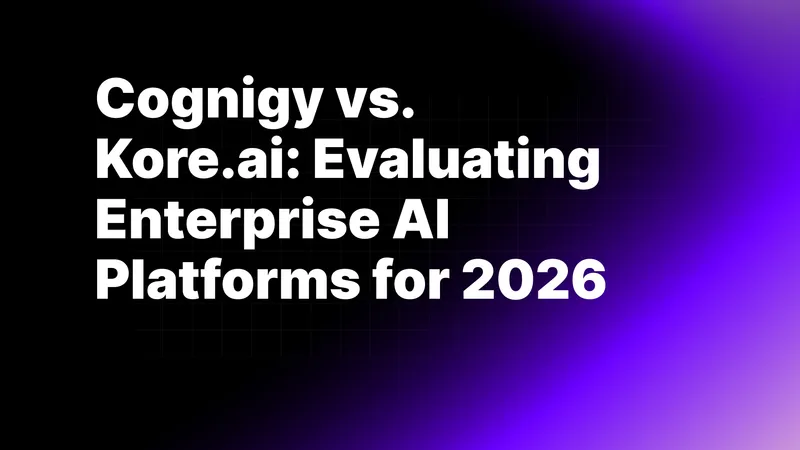
Compare Cognigy and Kore.ai for enterprise AI automation. Cognigy excels at high-volume voice and customer service; Kore.ai offers multi-agent orchestration across departments. Learn which platform fits your organization's needs.
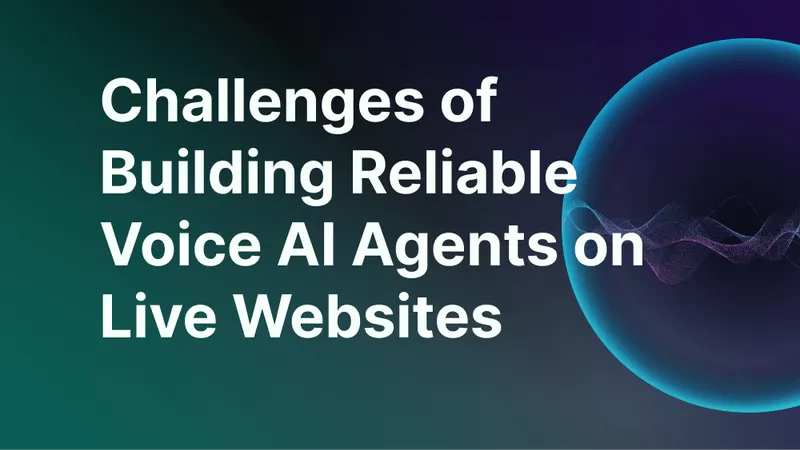
Why voice agents break on real websites. Direct script injection can't handle changing DOM selectors, page reloads, cross-domain iframes, or complex content. Virtualization fixes these problems.
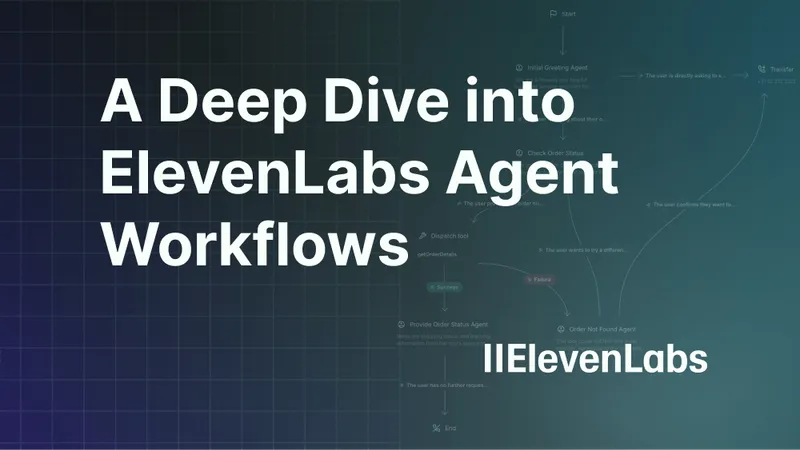
Explore ElevenLabs Agent Workflows, a visual platform for building dynamic voice AI agents. This guide covers core components like Subagents and Dispatch Tools, offers a step-by-step tutorial for creating a customer service agent, and discusses advanced strategies for modular design and optimization.
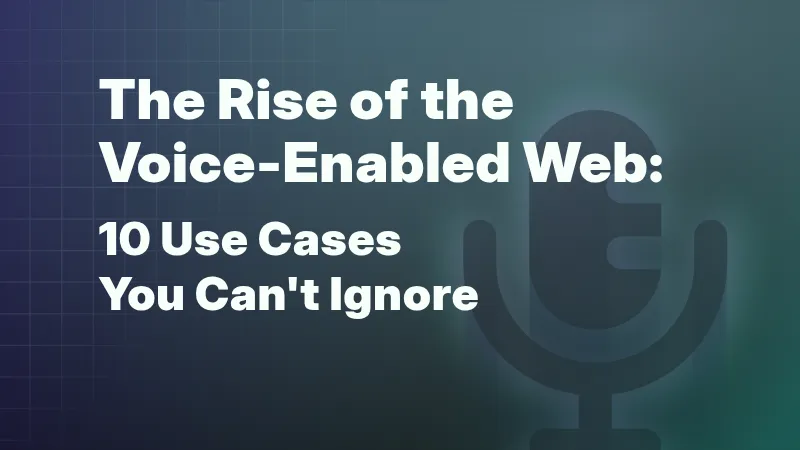
Discover 10 powerful use cases for AI voice agents that are transforming the web. Learn how voice technology can enhance customer support, navigation, and e-commerce.

A hands-on step-by-step guide to deploying a functional voice agent from configuring ElevenLabs to building Webfuse Session Extensions and testing live.

Master the perception and action tools that give voice agents their digital eyes and hands, including DOM snapshots, mouse interactions, keyboard input, and viewport control.

Learn the technical architecture behind voice agents, including Virtual Web Sessions, Session Extensions, and the Automation API that enables real-time website control.
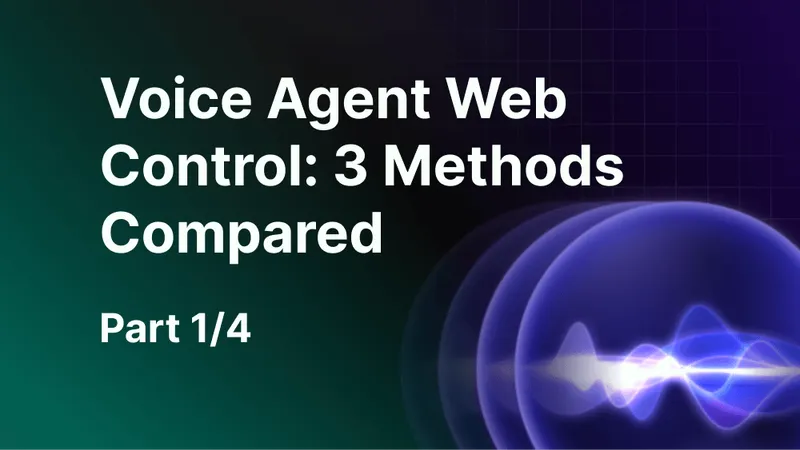
Explore how voice agents move beyond conversation to take direct action on websites through tool calling, function execution, and three primary methods of website interaction.
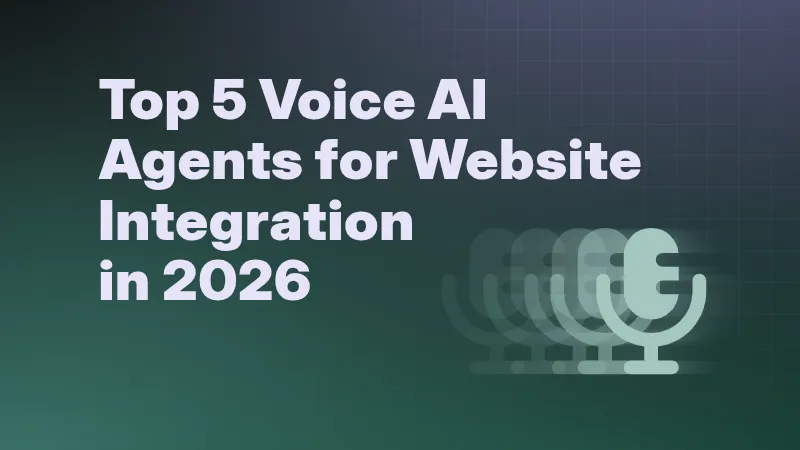
Discover the top 5 voice AI agent platforms for website integration in 2026. Compare ElevenLabs, Deepgram, Vapi, Google Dialogflow, and Voiceflow to build conversational experiences that listen, understand, and take action on your website.
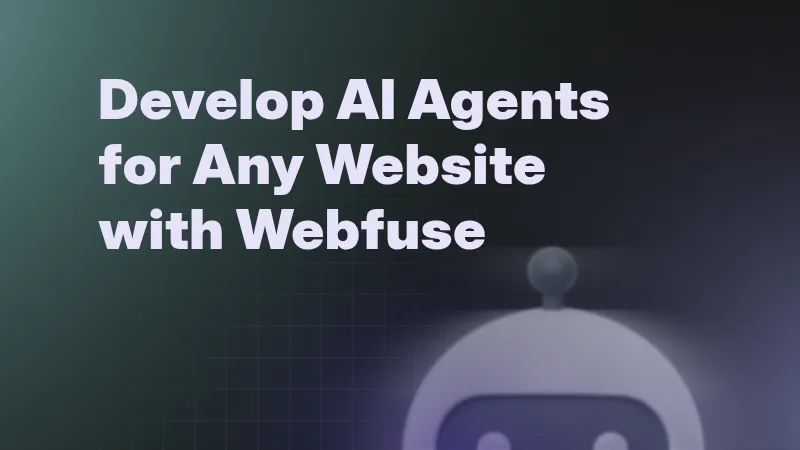
AI agents represent a next-gen web UI/UX enhancement that outperforms traditional guides around friction. Learn how to develop an AI agent on top of any web application with Webfuse.
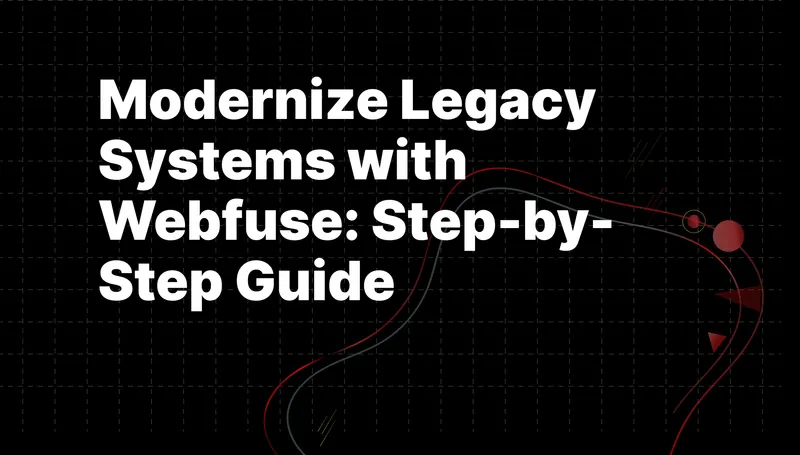
Transform outdated legacy systems instantly with modern interfaces, visual enhancements, and improved functionality using web augmentation technology. No code changes needed.
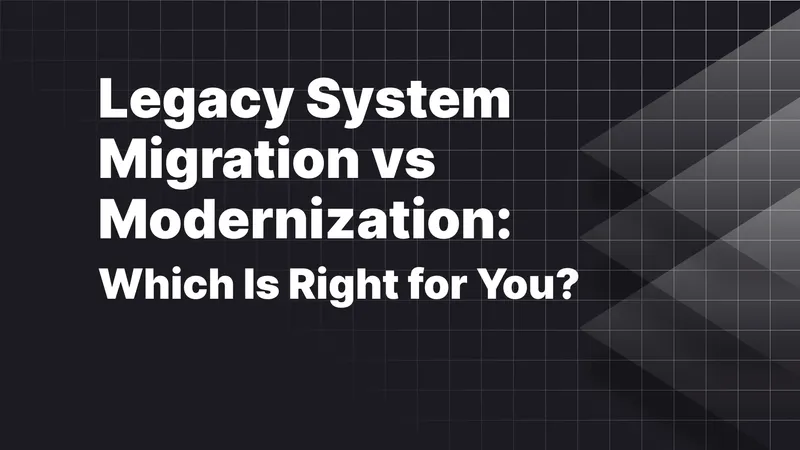
Compare legacy system migration, incremental modernization, and web augmentation approaches. Learn which strategy delivers the best ROI with minimal risk for your organization's digital transformation needs.

All you need to know about website embedding, and options you have when embedding third-party applications.
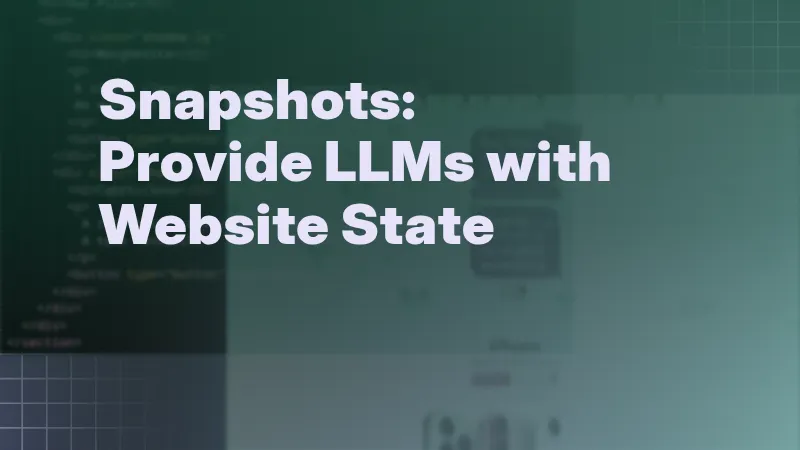
Comparison of the two prevalent techniques to compile web application snapshots, which represent key context for LLM-based AI agents for the web: DOM snapshots and GUI snapshots (screenshots).
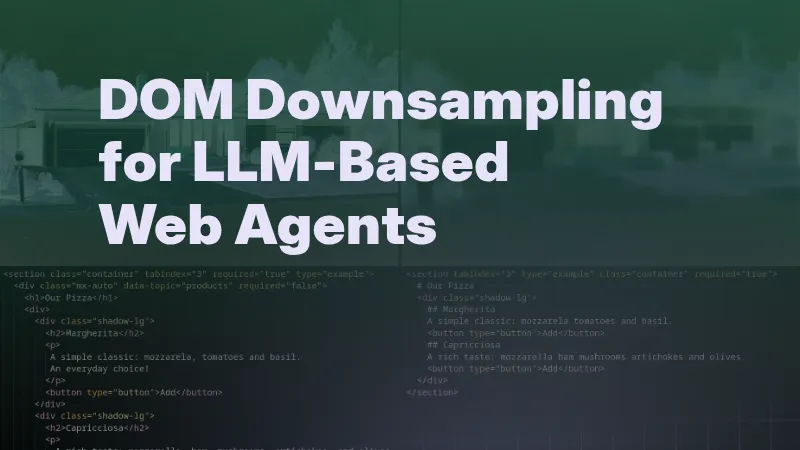
We propose D2Snap – a first-of-its-kind downsampling algorithm for DOMs. D2Snap can be used as a pre-processing technique for DOM snapshots to optimise web agency context quality and token costs.

Track user interactions on websites you don't own by injecting Google Analytics with Webfuse. Follow this guide to create a simple extension, set up tracking, and gain insights from third-party sites like Amazon or competitors—all through specialized Webfuse links.
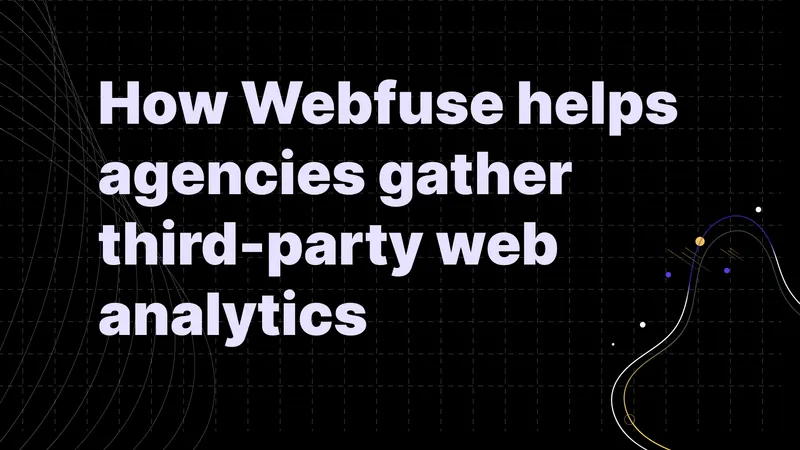
Learn how Webfuse helps marketing agencies track user behavior on third-party websites, close the analytics visibility gap, and optimize campaigns with data.
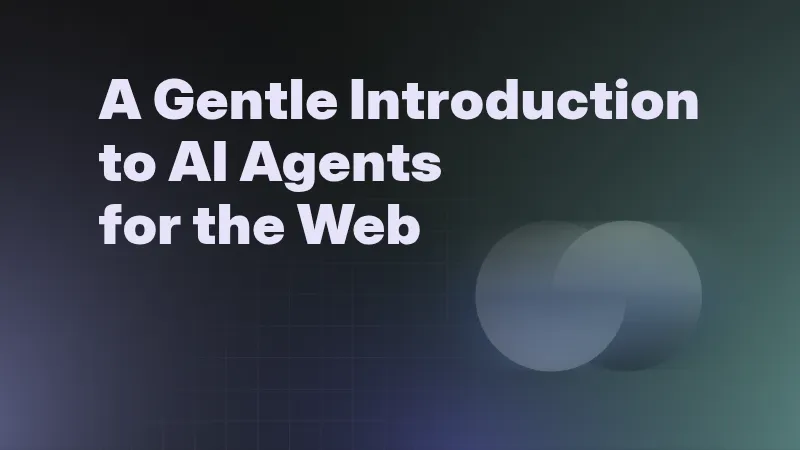
LLMs only recently enabled serviceable web agents: autonomous systems that browse web on behalf of a human. Get started with fundamental methodology, key design challenges, and technological opportunities.

This tutorial guides you through creating a secure, restricted web session using Webfuse and its Lockdown App. You will learn how to record a user's web journey into a HAR file, extract the necessary URLs, and generate a regular expression to serve as a gatekeeper. By configuring the Lockdown App with this regex, you can build a controlled environment where users can only access pre-approved websites.
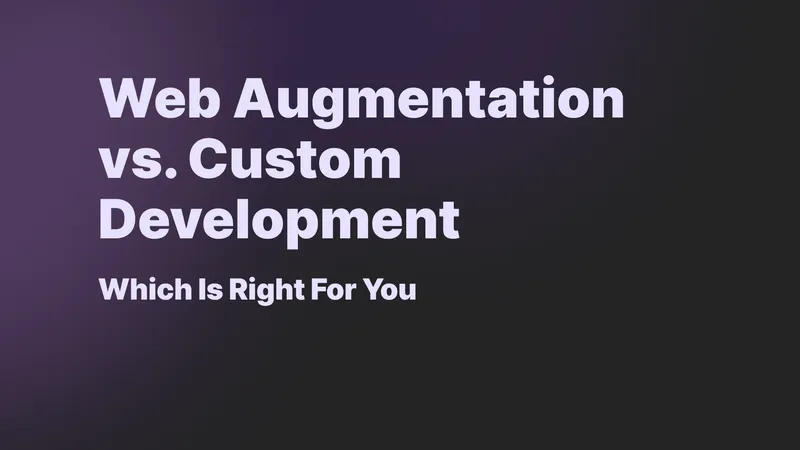
This guide compares web augmentation and custom development, helping you choose the right path for fast fixes, SaaS tweaks, or building core platforms.
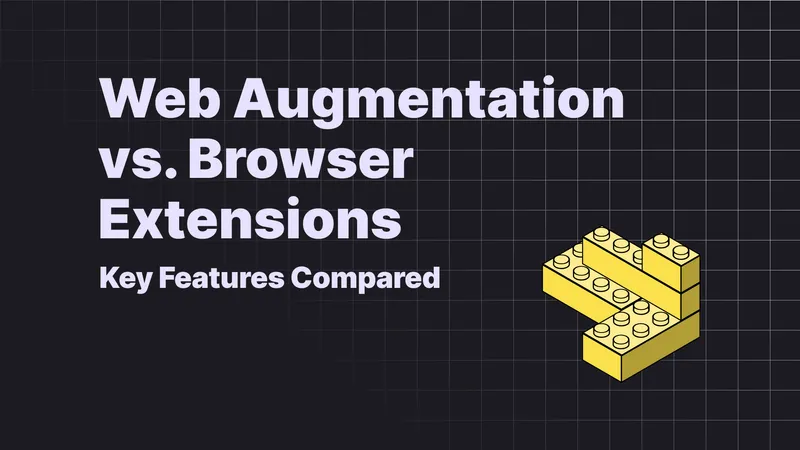
This article compares web augmentation and browser extensions for customizing websites. Browser extensions modify sites client-side, requiring user installation, while web augmentation uses a server-side approach to deliver modified versions without installs. Understanding this core difference in how changes are applied helps in selecting the most suitable method for individual or team-based web customization needs.
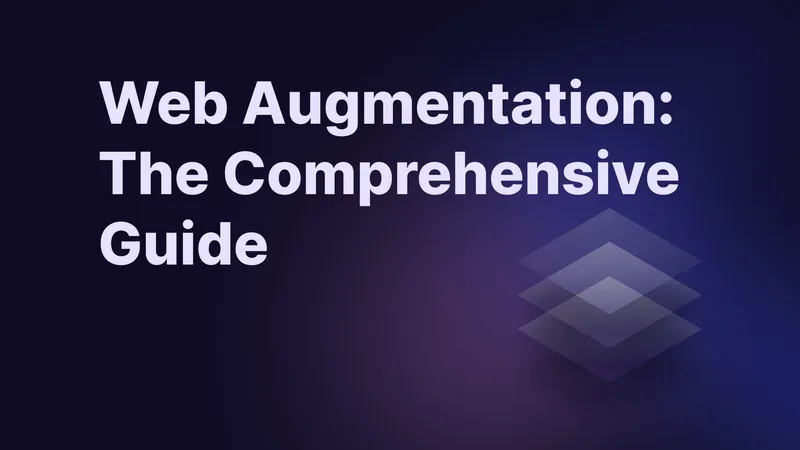
Discover how to enhance any website with web augmentation. How Augmented Web Proxies and Virtual Web Sessions enable secure co-browsing, automation, compliance overlays, and more.
A developer's guide to preventing cross-site tracking through embedded widgets, forms, and iframes using virtual browser sessions.

You can't view someone else's Google Analytics dashboard — but there are still powerful ways to uncover how a website performs. In this guide, we break down traffic estimation tools, highlight their limitations, and introduce the Webfuse Method: a session-based tracking approach that lets you inject your own Google Analytics tag into any third-party site you control access to.

We built a tool that lets you automate tasks on the web on top of Webfuse and Microsoft Copilot. It can handle internet-based tasks directly in your browser, with no installation required. In this article, we'll cover our approach, challenges, highlights, and surprises along the way.
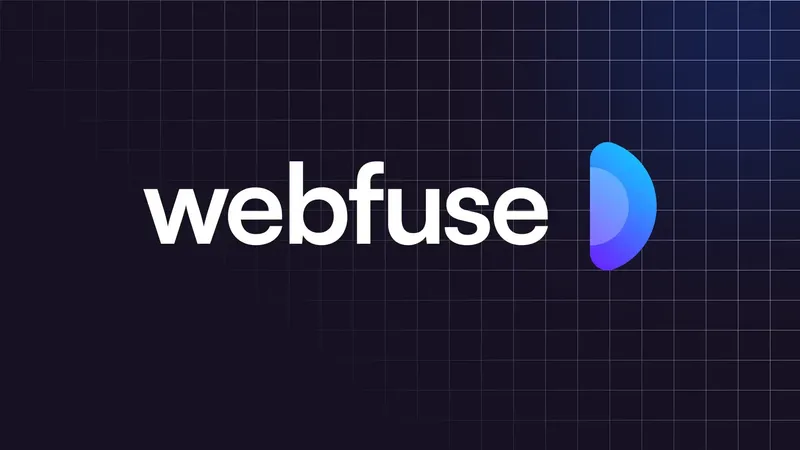
Web Augmentation is a new paradigm that lets developers modify, automate, and share any web application - without access to its code. It creates a programmable overlay on top of the existing web. In this post, we explore how the web became closed, how Web Augmentation re-opens it, and why it's vital for the age of agentic AI.